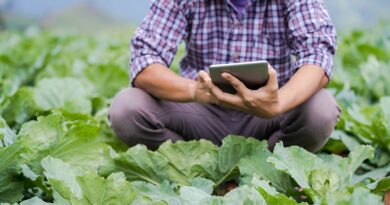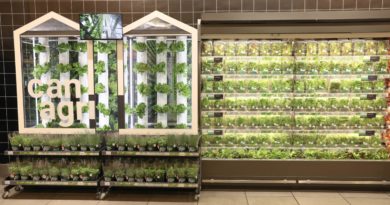Botswana’s Case for Fish Farming
In this article, Ulf Nermark, founder of Water Farming Botswana, a local company that offers consulting services and practical training on fish farm management, explains to Farmers Review the pros and cons of fish farming.
Farming in water has been practiced in several countries for a very long time. Initially it was done in freshwater dams but nowadays it is also done in huge cages in the ocean and sophisticated land-based systems.
In many countries fish farming takes place in open earth ponds and as a result many argue that Botswana does not have the water resources or the required clay soil for fish farming. This situation is made worse by the fact that using open ponds also loses lots of water through evaporation. Having said that, it is not true that fish farming cannot work in Botswana as some believe.
At present there is only one commercial fish farming in the country located in Kasane. Even in neighboring South Africa it has not yet properly established itself (perhaps except for abalone farming in sea water).
Systems
As heating open ponds would be too costly, there are many other alternative water efficient systems for fish farming which are now available in the market and can make the initiative worthwhile for many Batswana. These systems entail greenhouse tunnels that can be heated during the colder months of the year to enable continuous production. Advantages that come with such systems include the use of filtration such that water can be re-circulated continuously, resulting in minimal water use and wastage. Also, intensive tank systems in closed greenhouse tunnels have little predation and water losses due to evaporation are minimized as well.
Bream
The fish that is considered best as a commercial farm species for southern Africa is presently the Tilapia, popularly known as the bream. It is a fish that is farmed in different systems all around the world, even in quite cold countries. This fish grows best in water with a temperature between 26 and 30 degrees Celsius. The challenge in Botswana is that the water temperature goes way below that during the colder winter months.
Production figures for bream indicate that two greenhouse tunnel units covering about only 1,500 square meters can produce 120 tons of fish per annum. As such fish farming does not require huge tracts of land, meaning that such economic activities can be located in or around urban centers in close proximity to potential clients. This will ensure that local customers get to enjoy fresh fish which has not been affected by prolonged storage due to transportation over long distance.
Production
Fish farming is usually divided into two phases; fingerling production and grow-out. The first phase is to breed, hatch the fish eggs and raise fingerlings to a size of about 10-20g each. (This phase can be compared to the day-old chicks industry which is part of poultry production.)
The grow-out phase will then grow these small fish into the largest possible size in the shortest possible time. This can be 350-500g per fish and is usually reached after 6-8 months. Feeding is done with formulated Tilapia feed and this is the highest operational cost.
Challenges
This is a relatively new industry in southern Africa and as with all agriculture it involves risks. The major disadvantage for such an intensive fish farming system is that it needs good management skills as well as knowledge about fish as a farm animal. While much of the needed material for farming can be sourced locally, some of the industry specific items such as filters, etc. will have to be imported.
The farming in itself is not based on any difficult rocket science. People with good animal husbandry skills should have no problem learning how to handle fish as a domestic stock. However, it takes time to learn and one cannot do it by remote control. Someone with the knowledge must be at the farm at all times.
Fish farming in tunnels requires capital investment than some other traditional fishing methods and the set up costs could prove to be a hindrance especially for rural communities. These costs include those of fish feed, maintenance of the system, staff salaries as well as for disease management and control.
Another challenge is that there is a likely increase for chances of disease in this system because fish are kept in close proximity. If a fish gets sick with a contagious disease or parasite, it’s likely to transfer to other fish on the farm. Therefore, it requires the farmer to always monitor and asses fish tanks on a regular basis.
The Future
Import statistics for fish and seafood from 2016 indicates an import of 3960 tons with a value of Pula 105.4 million. If one looks at only the frozen fish segment it indicates an import of 400 tons with a value of P 11.7 million. Tilapia (bream) import comes mainly from China through trading companies in South Africa.
It is considered that fish consumption would increase in Botswana if access to fish of good quality was improved, information about health benefits promoted and at competitive prices.
Local production through aquaculture and improved value chain management of natural stocks can contribute positively to the economy as it has the potential to decrease imports, increase value, generate employment and diversify the food production sector. It must be emphasized however that any local aquaculture initiatives will need to produce high quality products so as to compete with imports.
About Ulf Nermark
One of the aims of Ulf Nermark is to try and disseminate as much information as possible to enable Batswana to set up successful fish farming enterprises. Ulf has worked with natural resources within the Botswana government between 1990 and 2000. He later set up Water Farming Botswana (Pty.) Ltd. to promote the idea of fish farming in the country.
He has taught aquaculture at the Botswana College of Agriculture for 2 years and set up a small education facility there. He is a LEA mentor and has BQA accreditation to teach fish farming.
Water Farming Botswana is at present the only local company that can offers Consulting services in this field based on practical experience in Botswana. The company can assist with practical training on fish farm management.
If you need more information regarding this article or about fish farming contact
Ulf Nermark at:



